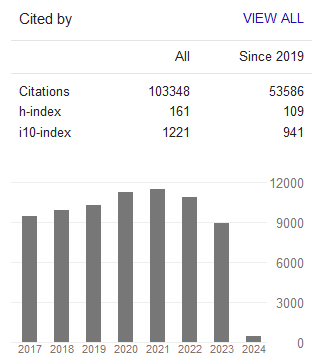The Differences in Job Characteristics, Job Satisfaction, and Organizational Commitment of Taiwanese Expatriates Working
- Sheng Wen Liu
- Ralph Norcio
- Jung Tsung Tu
Abstract
With a population of 1.2 billion, mainland China has become a major target country for many foreign companies looking to expand their businesses because of its inexpensive labor and large market. In 2009, there were 77,642 companies from Taiwan operating in mainland China with fiscal expenditures exceeding US $47.77 billion dollars. If Taiwan’s foreign direct investment (FDI) and offshore investment expenditures were included, Taiwan would have had the second largest FDI in mainland China. The purpose of this study is to investigate the difference in job characteristics, job satisfaction, and organizational commitment depending on family location of Taiwanese expatriates working in mainland China. The entire accessible population of 6,156 Taiwanese expatriates was invited to participate by e-mail - resulting in a valid sample of 389 responses. The methods of data analysis used in this study consisted of exploratory data analysis (EDA), exploratory factor analysis (EFA), internal consistency reliability, and two-tailed independent t-tests. Findings indicated that variety and autonomy, intrinsic job satisfaction, affective commitment, and normative commitment were identified as having positive significant differences between Taiwanese expatriates who were living with family in China and those not living with family in China. Further study to replicate the research in different countries in order to explore the relationships among job characteristics, job satisfaction, and organizational commitment of expatriates was recommended.- Full Text:
 PDF
PDF
- DOI:10.5539/ijbm.v4n11p11
Journal Metrics
Google-based Impact Factor (2023): 0.86
h-index(2023): 152
i10-index(2023): 1168

Index
- Academic Journals Database
- AIDEA list (Italian Academy of Business Administration)
- ANVUR (Italian National Agency for the Evaluation of Universities and Research Institutes)
- Berkeley Library
- CNKI Scholar
- COPAC
- EBSCOhost
- Electronic Journals Library
- Elektronische Zeitschriftenbibliothek (EZB)
- EuroPub Database
- Excellence in Research for Australia (ERA)
- Genamics JournalSeek
- GETIT@YALE (Yale University Library)
- IBZ Online
- JournalTOCs
- Library and Archives Canada
- LOCKSS
- MIAR
- National Library of Australia
- Norwegian Centre for Research Data (NSD)
- PKP Open Archives Harvester
- Publons
- Qualis/CAPES
- RePEc
- ROAD
- Scilit
- SHERPA/RoMEO
- Standard Periodical Directory
- Universe Digital Library
- UoS Library
- WorldCat
- ZBW-German National Library of Economics
Contact
- Stephen LeeEditorial Assistant
- ijbm@ccsenet.org
